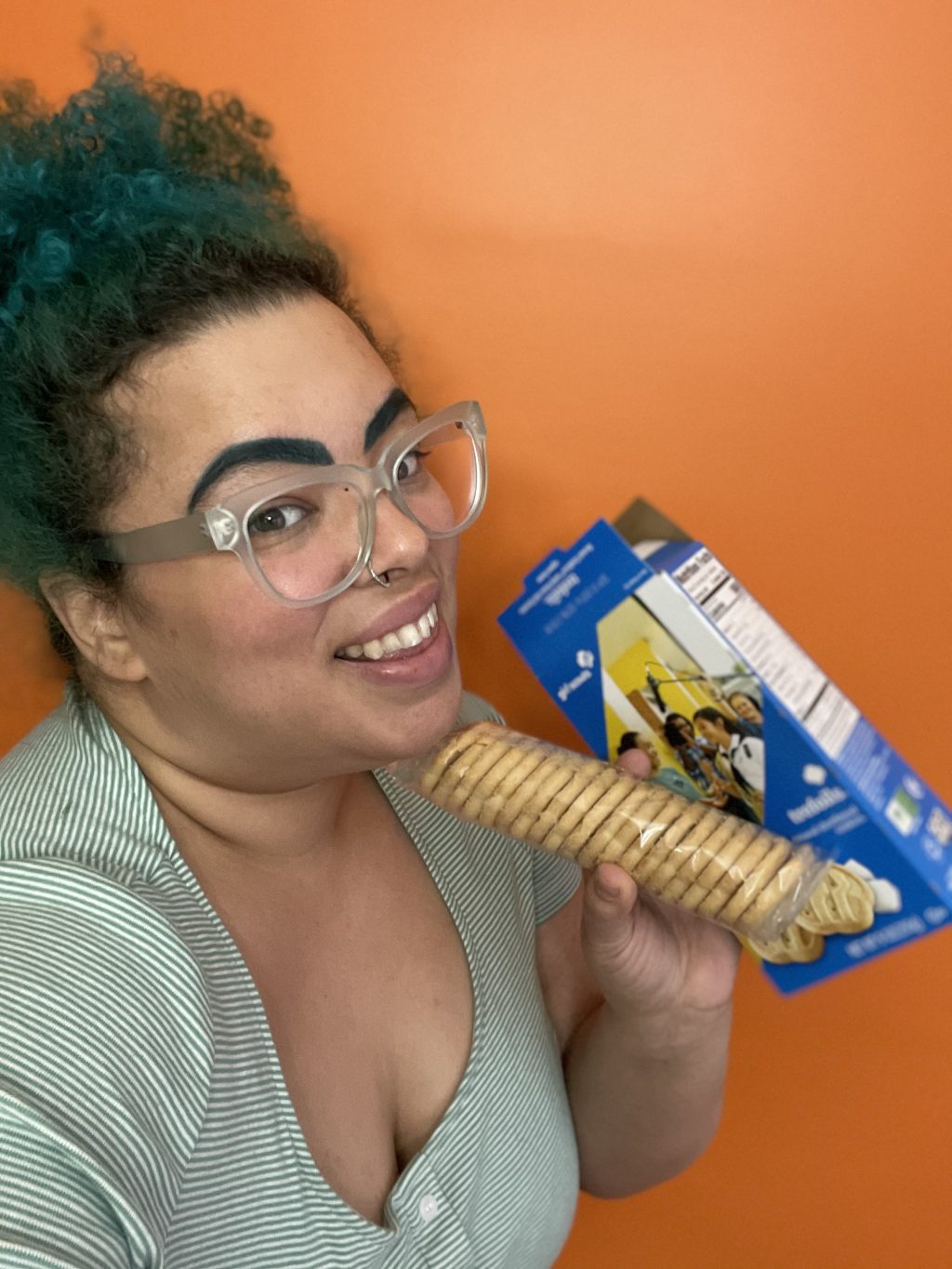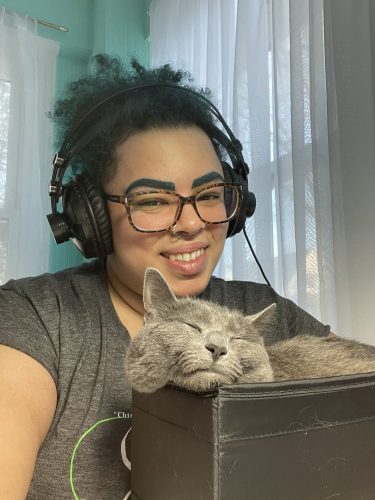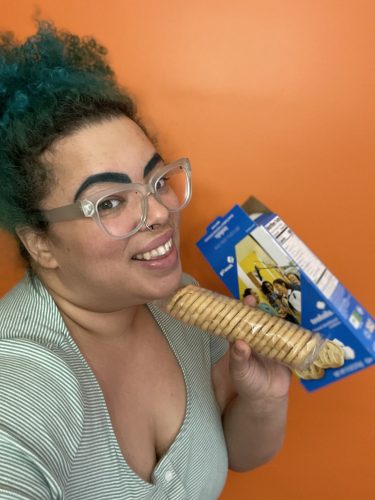
Is it Hot in Here, or is it Just Burnout?

My furry therapist, Tawnta.
What’s that smell? Is there a bonfire somewhere nearby? Did you leave the iron on? Did someone forget to take something out of the oven? Nope, it’s just good old-fashioned burnout, baby.
In the time since I started working with Columbia’s Office of Student Persistence, I’ve seen just how rampant the effects of burnout can run in an academic setting. Of course, there are present circumstances in light of the pandemic impacting students’ mental and emotional health, but it’s more than that. School is hard. Life is hard. All of the planning and organization in the world can’t eliminate the unpredictable stresses of life. Preparation is key.
When we get busy and overwhelmed, so often the first thing to fall to the wayside is prioritizing self-care. Keep in mind that self-care is more than bubble baths, mani-pedis, and feel-good playlists. Those are all lovely, comforting things, but sometimes self-care is just putting on a change of clothes, grabbing a shower for the first time in a few days, or even just remembering to take your meds each day. Many people view self-care as decadence or luxury, and of course, treating yourself now and then is important, but self-care is simply, at its core, the ongoing maintenance of looking after oneself. It’s necessary.
By the time you get to grad school, you may feel like you know yourself well enough to gauge your needs, abilities, and limitations, but try not to get too cocky. Everyone gets exhausted and overwhelmed sometimes. It’s how you address it that makes all the difference.
I live with depression, anxiety, and CPTSD. I’ve experienced burnout many times in my life, and my time in institutions of higher learning has been no exception. Historically, I’ve often pushed myself too hard, working past the point of what is reasonable or responsible to expect of myself. Starting grad school was a decision that I made enthusiastically, but not lightly. It’s a difficult and demanding prospect, and it’s important to go into it prepared to be good to yourself, and with a strategy for coping with the challenges that will arise.

Girl Scout Cookies count as self-care. You can order them online from your local troupe now, too. What a time to be alive!
Here’s a list of best practices to help you regulate emotional stress and care for yourself during your grad school journey. These are just ideas drawn from my own experiences as I’ve gone through school and therapy, as well as my work in teaching. This is not a substitution for professional mental health advice, just some thoughts from student to student. It’s important to develop your own approach to self-care and both proactively managing and reacting to life’s challenges. I encourage you to try things out and find what works best for you!
-
- Remember that you are human. We all are. Be kind to yourself and show yourself the same patience you would show others. Your work, output, or productivity will never be more important than your humanity.
- Treat yourself like you would a friend. When negative self-talk starts to creep in, imagine if someone were saying the same things about someone you care for that you’re saying or thinking about yourself. Hold that same standard for yourself.
- Check in with yourself. Learn to spot the signs and feelings that occur when you might be starting to get overwhelmed and keep a back pocket strategy for how to head those issues off at the pass and avoid a meltdown.
- Socialize. Connect with your cohort, make new friends, and keep in touch with loved ones who may live elsewhere. It’s important to have a strong support system and to maintain those connections in good times and bad times alike.
- Keep a calendar and make to-do lists. This may seem like a bit of a no-brainer, but it’s crucial. It’s important not just to have these things, but to make sure that they are in a format that works for you and is practical and sustainable for your life.
- Treat yourself. Find nice things to do for yourself each and every day, even if they’re just small things. It’s important to make sure that there’s a bit of joy in each and every day. Little treats can make a big difference.
- Choose a mantra. Find a quote or affirming phrase that inspires you and motivates you, and say it out loud to yourself each day.
- Rest. Give yourself permission to relax and get sufficient sleep. This is vital. Caffeine can’t solve everything. Trust me, I’ve tried.
- Give yourself a hug. Seriously, try it! Here are some tips on practicing supportive touch.
- Reach out. A closed mouth doesn’t get fed, so let your loved ones, instructors, advisors, etc. know what’s up so they can help you find solutions and take care of yourself during difficult times. Some helpful campus resources include Student Relations, Student Persistence, Counseling Services, Academic Advising, Academic Life Coaching, and Services for Students with Disabilities.
Now go forth, and take care. You got this.
